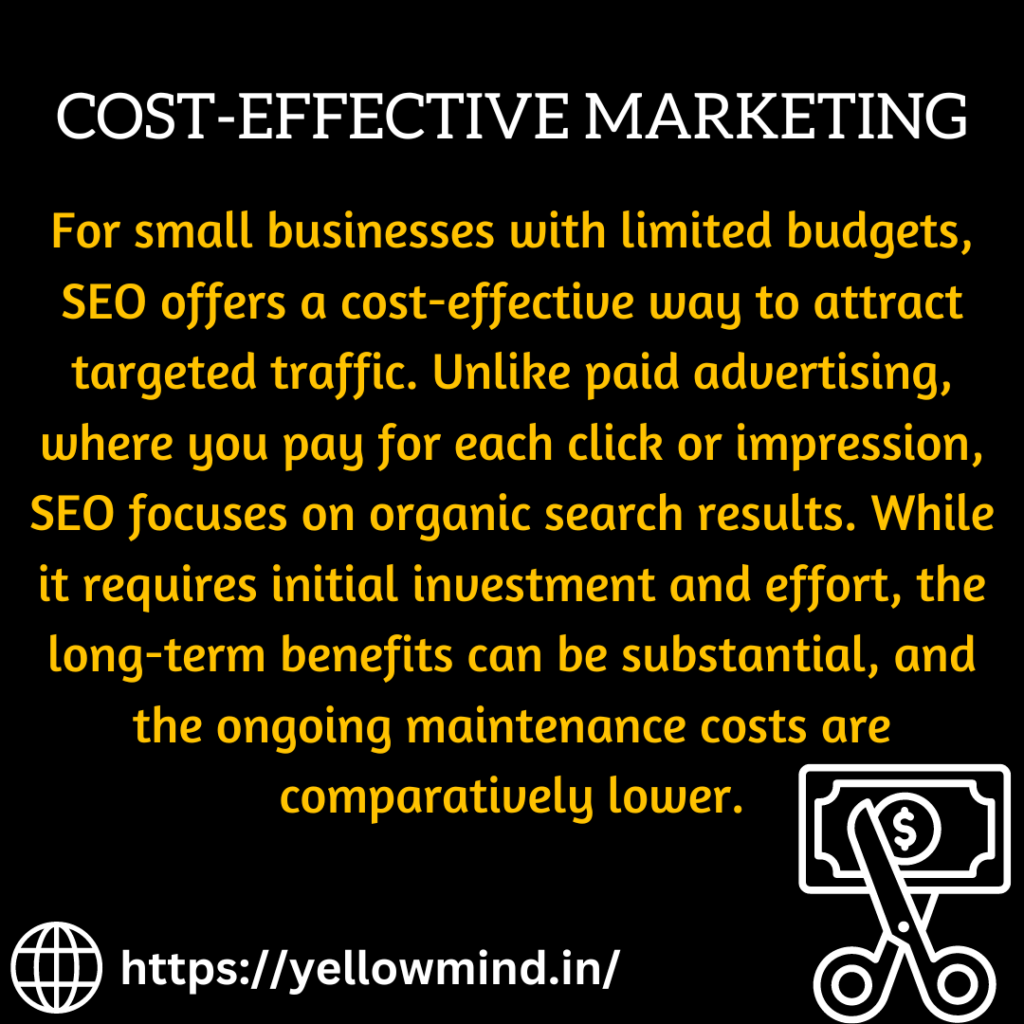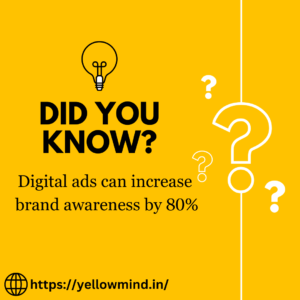WHAT IS SEO?
Search Engine Optimization (SEO) is an intricate and ever-evolving discipline that plays a pivotal role in the digital landscape, determining the online visibility and success of businesses, websites, and content. It encompasses a comprehensive set of strategies and techniques designed to enhance a website’s ranking on search engine results pages (SERPs), thereby driving organic traffic and improving its overall online presence. At its core, SEO can be broadly categorized into two main components:
ON-PAGE SEO and OFF-PAGE SEO, each wielding its own unique set of methodologies and significance.

WHAT IS ON-PAGE SEO?
ON-PAGE SEO, as the name suggests, refers to the optimization tactics applied directly to web pages to improve their search engine rankings and relevance. It involves an intricate process of optimizing various elements within a website, including content, HTML source code, and overall site structure.
One of the most fundamental aspects of ON-PAGE SEO is keyword optimization. This involves meticulous research to identify relevant keywords and phrases that users are likely to use when searching for particular information or products. Incorporating these keywords seamlessly into the content, meta titles, headings, and image alt tags allows search engines to understand the webpage’s context and rank it appropriately.
Content quality and relevance are paramount in ON-PAGE SEO. High-quality, informative, and engaging content not only caters to the audience’s needs but also makes the page more likely to be linked to and shared, indirectly boosting its OFF-PAGE SEO.
Furthermore, ON-PAGE SEO involves optimizing the website’s user experience (UX). Factors such as page load speed, mobile responsiveness, and intuitive navigation significantly impact how users interact with a site, and search engines consider these factors when ranking pages. A well-structured website hierarchy and well-defined internal linking also contribute to both user experience and search engine visibility.
WHAT ARE THE KEY BENEFITS OF ON-PAGE SEO?
Enhanced Organic Traffic: Higher search engine rankings translate to increased organic traffic, as users are more likely to click on websites listed at the top of SERPs. ON-PAGE SEO ensures that your website is more accessible and appealing to search engine crawlers, which in turn leads to greater visibility and clicks.
Better User Experience: ON-PAGE SEO involves optimizing various elements that contribute to a positive user experience. Well-structured content, clear navigation, fast loading times, and mobile responsiveness are all key aspects that enhance user satisfaction. A user-friendly website is likely to lead to longer visit durations, lower bounce rates, and increased conversions.

Improved Search Engine Ranking: Effective ON-PAGE SEO practices, such as optimizing meta tags, headings, and content, can significantly enhance a website’s chances of ranking higher in search engine results pages (SERPs). By using relevant keywords naturally and strategically throughout the content, search engines can better understand the website’s relevance to specific queries.
Targeted Keyword Optimization: ON-PAGE SEO allows you to strategically target specific keywords that are relevant to your business or industry. By incorporating these keywords in your content, headers, and meta descriptions, you increase the likelihood of attracting users actively searching for those terms.
Higher Click-Through Rates (CTR): Crafting compelling meta titles and descriptions can entice users to click through to your website from the search results. When these elements are well-optimized and reflect the content accurately, users are more inclined to click, leading to higher CTRs.
Content Relevance: Effective ON-PAGE SEO involves creating high-quality, relevant content that addresses users’ search intent. Search engines reward websites that provide valuable information and solutions to user queries. Publishing authoritative and informative content can establish your website as a trusted resource in your niche.
Reduced Bounce Rates: When users find what they’re looking for on your website, they are more likely to stay and explore further. This reduces bounce rates, which is when users quickly leave a website after viewing only one page. Lower bounce rates signal to search engines that your website offers valuable content and a positive user experience.

Optimized Images and Multimedia: ON-PAGE SEO extends to optimizing images and multimedia elements. Properly optimized images improve page load times, contribute to a better user experience, and can even appear in image search results, driving additional traffic to your site.
Structured Data Markup: Implementing structured data markup (schema markup) helps search engines understand the context of your content. This can lead to enhanced search engine listings with rich snippets, such as star ratings, event information, or product prices, which can attract more attention from users.
Easy Website Maintenance: Implementing ON-PAGE SEO practices often involves ensuring proper website architecture, clean code, and efficient internal linking. These elements make it easier to manage and maintain your website in the long run, benefiting both users and search engine crawlers.
In conclusion, ON-PAGE SEO offers a multitude of benefits that collectively contribute to higher search engine rankings, increased organic traffic, better user experiences, and improved conversions. By consistently applying these optimization techniques, you can establish a solid online presence and stay competitive in the digital landscape.

WHAT IS OFF-PAGE SEO?
OFF-PAGE SEO, on the other hand, focuses on the factors that occur outside of the website itself and influence its credibility, authority, and popularity. The cornerstone of OFF-PAGE SEO is link building. Search engines interpret backlinks from authoritative and relevant websites as indicators of a site’s trustworthiness and importance. Therefore, acquiring high-quality backlinks from reputable sources is a fundamental OFF-PAGE SEO strategy. However, the emphasis has shifted from quantity to quality; a few authoritative backlinks hold more weight than numerous low-quality ones.
WHAT ARE THE KEY BENEFITS OF OFF-PAGE SEO?
This multifaceted approach offers several key benefits that contribute to your website’s overall search engine rankings and online success.
Enhanced Search Engine Rankings: OFF-PAGE SEO plays a pivotal role in determining how search engines perceive your website’s credibility and authority. Backlinks from reputable and relevant websites serve as “votes” of confidence, indicating that your content is valuable. Search engines like Google consider these signals when ranking websites, improving your chances of appearing higher in search results.
Increased Organic Traffic: As your website’s ranking improves due to OFF-PAGE SEO efforts, you’ll likely experience an increase in organic traffic. When your website is visible on the first page of search results, users are more likely to click on your link, resulting in a steady flow of targeted traffic.
Builds Online Authority: OFF-PAGE SEO contributes to establishing your website as an authoritative source in your industry or niche. When other reputable websites link to your content, it signals to both search engines and users that your website offers valuable and reliable information. This authority can lead to greater trust among your audience.
Wider Brand Exposure: OFF-PAGE SEO efforts often involve engaging with social media platforms, online communities, and forums. This engagement introduces your brand to a broader audience beyond your website’s visitors, helping you connect with potential customers and followers.
Stronger Backlink Profile: Quality backlinks are a cornerstone of OFF-PAGE SEO. By acquiring high-quality backlinks from relevant and authoritative sources, your website’s backlink profile strengthens. A diverse and credible backlink profile is indicative of your website’s value, positively impacting your search engine rankings.
Referral Traffic: Backlinks not only influence search rankings but also generate referral traffic. When users click on a backlink from another website, they are directed to your site, potentially increasing engagement, conversions, and brand visibility.
Social Signals: Social media engagement and shares contribute to OFF-PAGE SEO. When your content is shared across social platforms, it indicates popularity and relevance, which can indirectly impact your search rankings.
Online Reputation Management: Engaging in OFF-PAGE SEO allows you to actively manage your online reputation. By participating in discussions, addressing customer concerns, and providing valuable insights, you can shape how your brand is perceived online.
Long-Term Benefits: OFF-PAGE SEO efforts, such as content outreach and relationship building, can have lasting effects. High-quality backlinks continue to provide value over time, contributing to sustained organic traffic and improved rankings.
Competitive Advantage: A robust OFF-PAGE SEO strategy sets your website apart from competitors that may only focus on ON-PAGE optimization. By consistently building a solid online presence, you can gain an edge in your industry and capture a larger share of the market.
In conclusion, OFF-PAGE SEO offers a wide array of benefits that go beyond just search engine rankings. It helps you establish authority, build connections, and enhance your brand’s visibility, ultimately contributing to long-term success in the digital landscape.
Social signals are another vital aspect of OFF-PAGE SEO. While the direct impact of social media engagement on search rankings is still debated, a strong social presence can enhance brand visibility, attract more traffic, and foster a community around a brand or content. Social media sharing can also lead to content going viral, generating more organic backlinks and traffic.
Online mentions also contribute to OFF-PAGE SEO. When a website or brand is mentioned across various platforms, it enhances its online reputation and authority. This might happen through guest posting, influencer collaborations, and media coverage. Local businesses can particularly benefit from local references, mentions of the business’s name, address, and phone number in local directories and platforms.
In recent years, user experience has become a more integral part of OFF-PAGE SEO than ever before. Search engines increasingly prioritize user satisfaction and engagement. If a website receives high traffic but has a high bounce rate or low average session duration, search engines might perceive it as not meeting user needs, potentially leading to lower rankings. This underscores the importance of creating content that resonates with the target audience and provides genuine value.
In conclusion, the symbiotic relationship between ON-PAGE and OFF-PAGE SEO is essential for achieving high search engine rankings and driving organic traffic. ON-PAGE SEO ensures that a website’s technical and content-related elements are optimized to be search-engine-friendly and user-centric. Meanwhile, OFF-PAGE SEO focuses on building the website’s credibility and authority through high-quality backlinks, social signals, and online mentions.
In the dynamic landscape of SEO, staying up-to-date with the latest trends, algorithms, and user behaviors is crucial to maintaining and improving a website’s search visibility and organic traffic over time. It’s not a one-time effort but an ongoing process that requires consistent refinement, adaptation, and innovation. Ultimately, a well-executed combination of ON-PAGE and OFF-PAGE SEO strategies can unlock the true potential of a website, propelling it towards online success and prominence in the digital realm.
https://www.instagram.com/yelloww.mindd/




